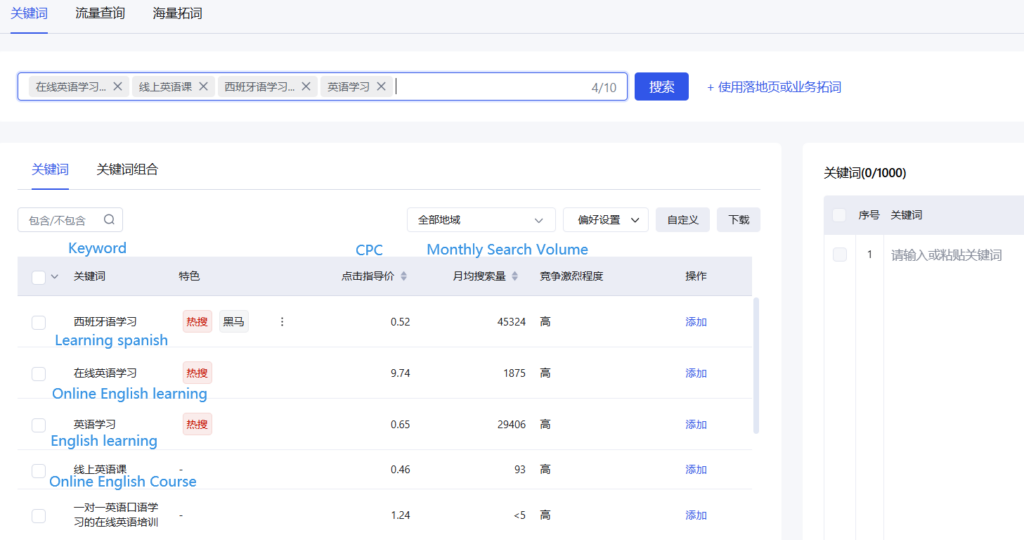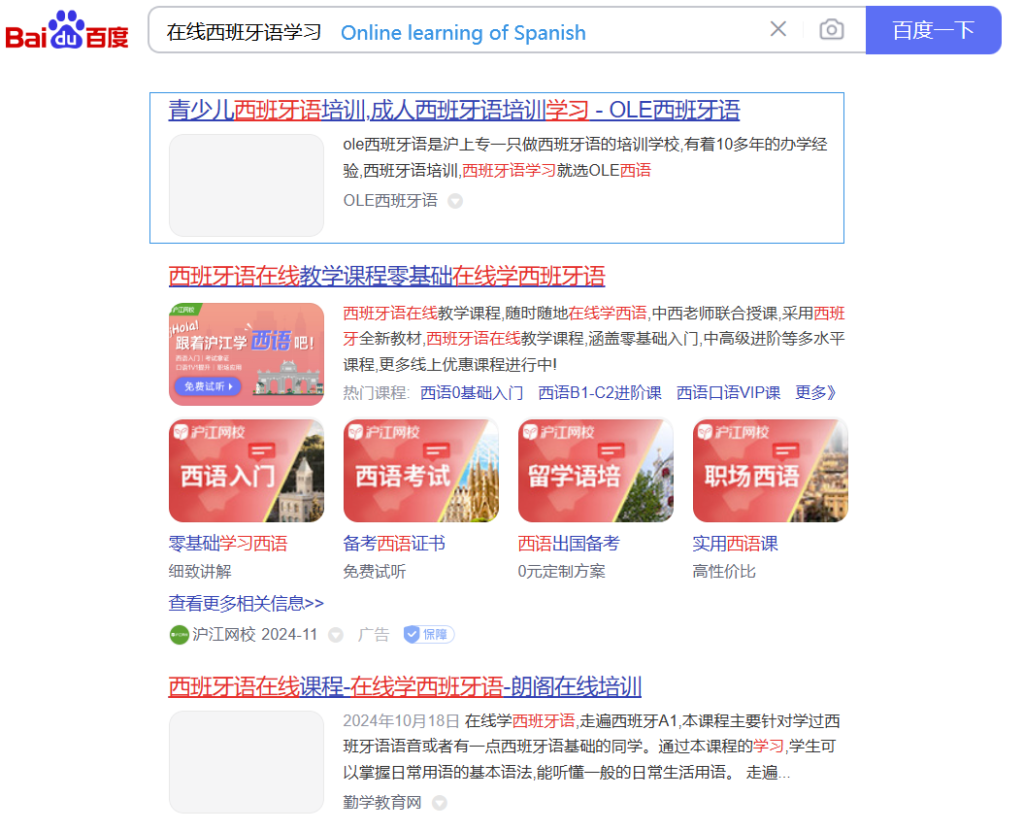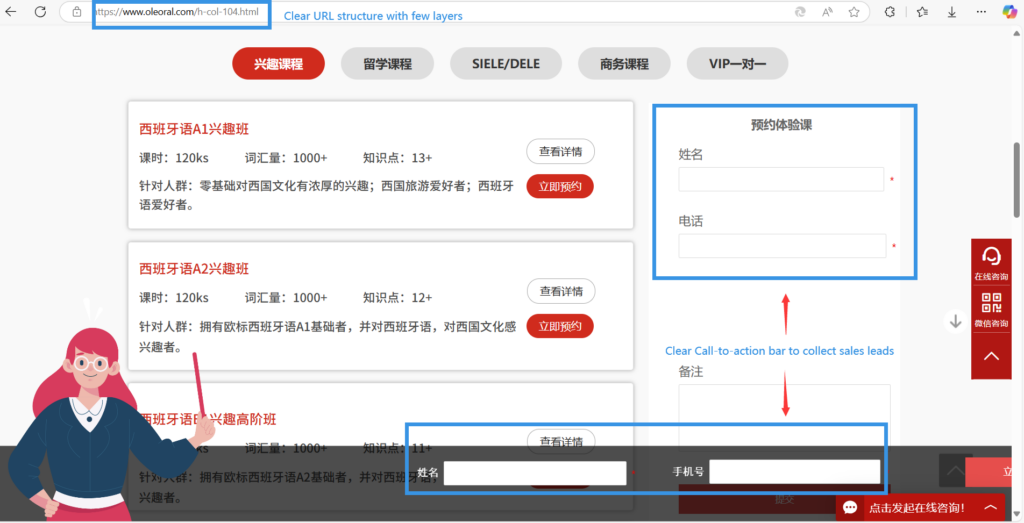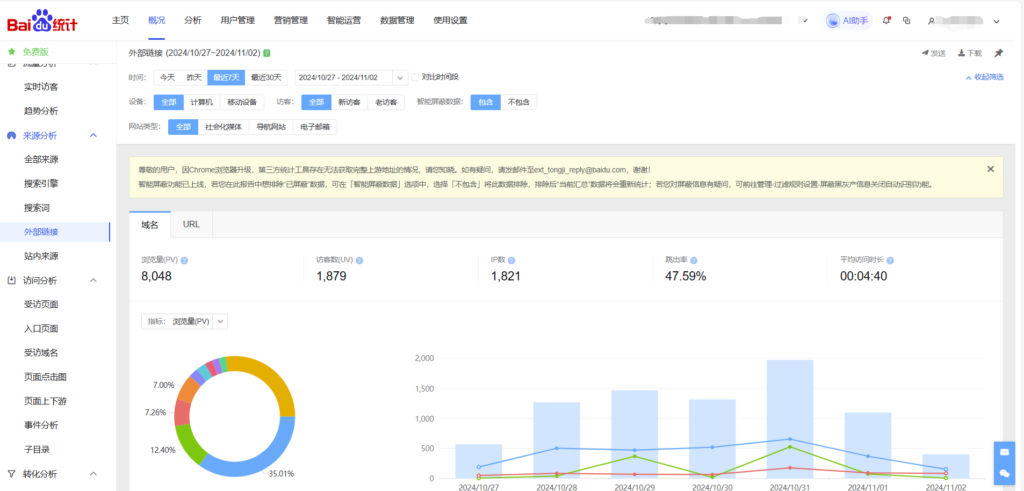Online education is a popular way of learning things for many students, whatever ages they are. It’s flexible in location or condition and has a wide choice of topics. When marketing to the Chinese audience, it’s always important to get traffic from search engine, especially Baidu. Using Baidu SEO in online education involves optimizing a website to improve its visibility and ranking on Baidu search results. In this article, let’s learn how to use Baidu SEO in online education, thereby attracting more potential students.
Keyword Research and Analysis
Identify Target Keywords: Conduct thorough keyword research to identify relevant keywords for the online education sector. Use tools like Baidu Keyword Planner or similar services to discover high-volume, low-competition keywords that align with the online education offerings.

Analyze Competitor Keywords: Analyze competitor websites to see which keywords they are ranking for. Then, incorporate similar keywords into the SEO strategy, while also identifying gaps and opportunities.

On-Page Optimization:
Title Tags and Meta Descriptions: Ensure that each page on the website has unique and keyword-rich title tags and meta descriptions. These elements are crucial for improving click-through rates from Baidu search results.
Content Optimization: Write informative, engaging, and keyword-optimized content for each page. This includes course descriptions, blog posts, and other educational resources.
URL Structure: Use clear and concise URL structures that include relevant keywords. In this way, it helps Baidu understand the content of each page and improves its chances of ranking well.

Technical SEO:
Website Speed: Optimize the website’s loading speed by compressing images, minifying CSS and JavaScript files. Above all, use efficient coding practices.
Mobile Optimization: Ensure that the website is fully responsive and provides a seamless experience on all devices, including smartphones and tablets.
Structured Data: Use schema markup to provide additional information about the website’s content to Baidu. For example, course information, reviews, and event details.

Building Authority and Trust
High-Quality Backlinks: Acquire backlinks from reputable websites and educational platforms. For example, collaborate with other online education providers and write guest posts on relevant blogs. In addition, participate in educational forums and communities.
Content Marketing: Create valuable and informative content, such as whitepapers, eBooks, and research reports. After that, share them on relevant platforms to attract backlinks and build domain authority.
Local SEO for Online Education
Localize Content: If the you targets specific geographic regions, localize the content by including relevant local keywords and information.
Local Directories: Register the website in local directories and educational platforms to improve visibility in local search results.
Monitoring and Analytics
Use Baidu Analytics: Set up Baidu Analytics to track website performance, keyword rankings, and user behavior.
Regular Audits: Conduct regular SEO audits to identify and fix any technical issues that may be affecting the website’s ranking.
Adjust Strategy: Continuously monitor performance and adjust the SEO strategy based on data insights and changes in Baidu’s search algorithms.

By following these steps and continuously optimizing the online education website, you can improve its visibility and ranking on Baidu search results. In the long run, you will attract more potential students and growing your business.
If you desire to know more about our Baidu SEO services, please feel free to reach us via service@baiduseopro.com



